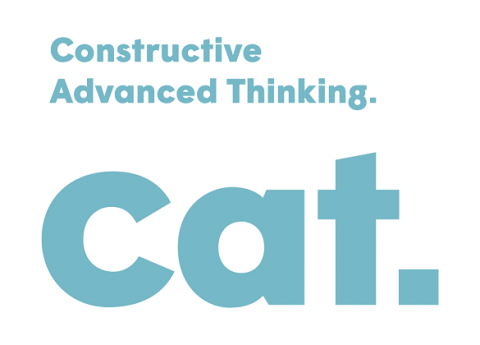Constructive Advanced Thinking (CAT) 2021 selection process results

The year of 2021 ended with an important event - the Selection Committee for the Constructive Advanced Thinking (CAT) programme has evaluated the project proposals submitted in the 2021 application round (the deadline - September 1, 2021). The CAT programme supports small interdisciplinary groups of promising early-career scholars and researchers led by a Principle Investigator seeking to work on projects that tackle crucial societal issues and emerging challenges. The selected groups embark on a series of short stays at the participating IAS to work on their projects, engage in expertise and knowledge exchange and benefit from stimulating discussions and debates.
In the 2021 application round two innovative projects have been selected:
1. Challenges for the development of fair language-based assessments of health, education, behavior, and beyond
Damian Blasi (Harvard University, USA – Max Plank Institute for the Science of Human History, Germany – Higher School of Economics, Russia), Joseph P. Dexter (Harvard University, USA), Amber Gayle Thalmayer (University of Zurich, Switzerland), Adolfo Martin Garcia (University of Santiago of Chile, Chile).
Linguistic behavior serves as a reliable, cheap, and increasingly automated resource to assess different aspects of individuals and societies, ranging from education to health and cognitive states. Speech samples might help detect incipient health issues, newspaper corpora are used to reveal what we collectively think about minority groups, and wordlists are the basis on which we determine verbal development - among a vast number of examples. However, these developments - which we label language-based assessments or LanBAs – were concocted, tested, and deployed primarily only on a handful of large and commercially central languages, with English dominating the scene. Since the 6,500 extant languages can and do vary substantially (and in every dimension), transferring LanBAs from English to them is often fraught with important technical and linguistic challenges, which might not be appreciated by practitioners in need of them. The consequences of this bias, which we only start to understand, is that speakers and signers of minority languages have at their disposal more expensive, less efficient, and potentially biased LanBAs.
The project addresses this complex and multifaceted issue by gathering a diverse set of experts covering cognitive neuroscience, digital humanities, comparative linguistics, developmental science, and cultural psychology with three main tracks of activity. First, it critically synthesizes the scientific evidence revealing the Anglophone bias in LanBAs, aiming at finding differences and commonalities across our fields of practice. Second, it engages policy-makers, experts on language technologies, and other non-academic agents with the purpose of building a clear course of action to transfer findings into practical recommendations amenable to impact the current state of the art in the development of LanBAs. Third, it engages with the general audience through diverse media strategies, including filming a mini-documentary on the topic of the group visits to the different IAS.
2. Screening European Populisms (2008-2020): Audiovisual Fiction, Social Media, and Political Affect.
Valerio Coladonato (Sapienza University of Rome, Italy), Marc Guinjoan (University of Barcelona, Spain), Dom Holdaway (University of Urbino, Italy), Elena Pilipets (Alpen-Adria-Universität Klagenfurt, Austria – University NOVA in Lisbon, Portugal), Lidia Valera Ordaz (University of Valencia, Spain).
Populist forces have recently transformed the political landscape in Europe, challenging the legitimacy of institutions and representational systems. Frequently aligned with reactionary – sometimes explicitly post-fascist – platforms, these actors emphasize ethnonationalist and exclusionary societal views. The mainstream media, politicians, and migrants are demonized, and mistrust in the system is a widely circulated currency. Affect plays a central role in the success of this worldview – such as anger at perceived victimization and loss of social status, resentment against elites, and attachment to leaders who “bravely” defy political correctness. Populist affect is now also inseparable from our digital media environment; while citizen access to political discourse has grown, their interactions are increasingly shaped by their respective ideological and affective communities.
Narrative work is a crucial element of populist mobilization, yet the role of audiovisual fiction in these processes remains significantly understudied: grasping this relationship is necessary to disentangle populisms’ capacity to transform affect into democratic erosion. From the citizen’s perspective, political affect and audiovisual fiction spread through an uninterrupted flow – but due to disciplinary fragmentation, scholarship often tackles isolated parts of the experience and misses the whole picture. The project aims to trace and re-connect the different dimensions of the process, by analyzing narrative and stylistic aspects of films and TV series in a number of Western European countries, tracing their reception, interactions, and appropriations in social media content and online political conversations. The project will focus on the impact and circulation of key case studies in a number of Western European countries between the onset of the 2008 financial crisis and Brexit. The collaboration of scholars in film, TV, digital media, and political sciences, as well as two organizations working in political participation and in media literacy (SALTO Participation & Information; Media & Learning Association), will enable a better understanding of the role of fiction in creating and spreading populist affect in this political conjuncture.
The IAS CEU will be the coordinating institution for the project led by Valerio Coladonato and is looking forward to hosting the group in the years 2022-2025. More information on these visits to follow.
